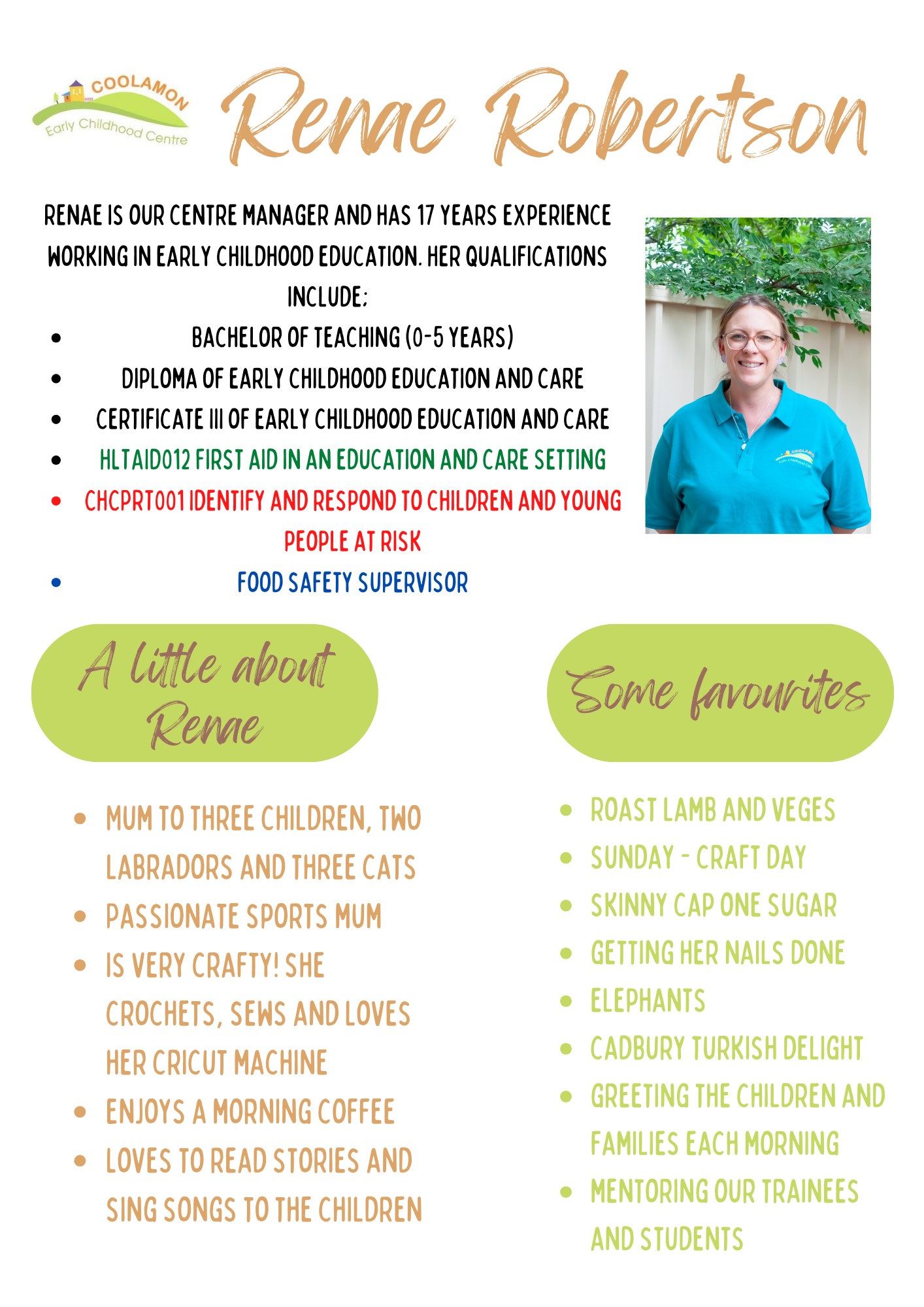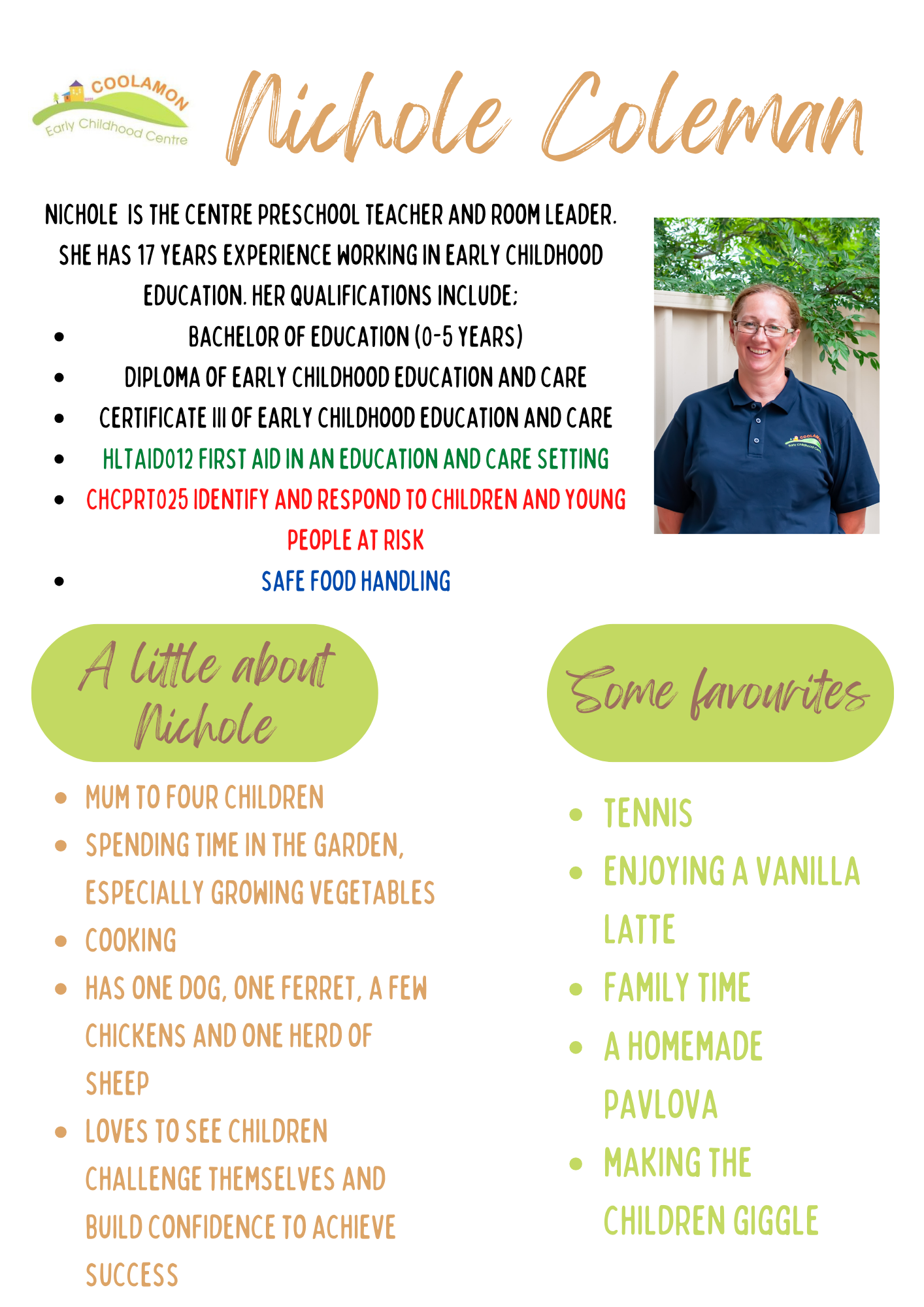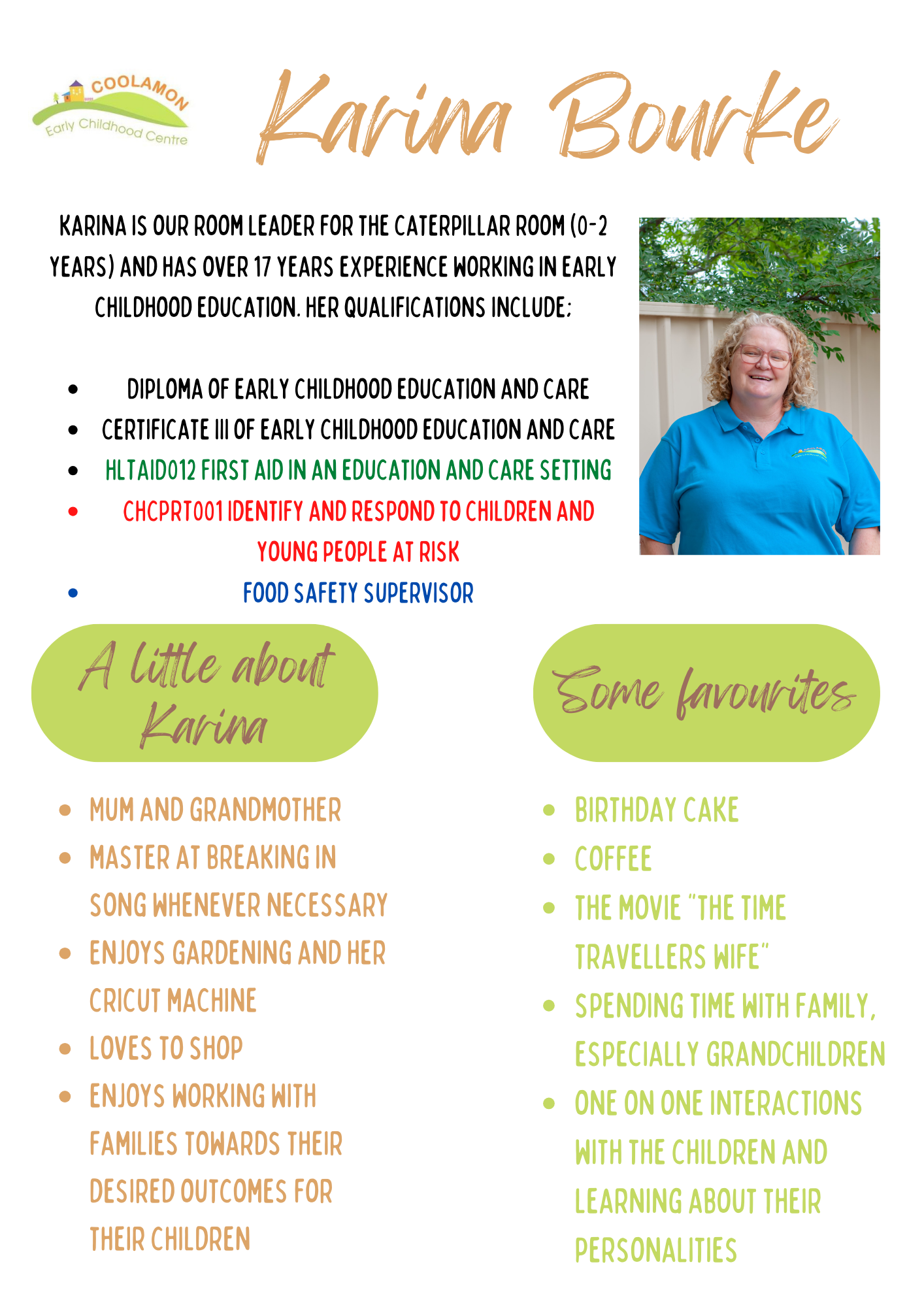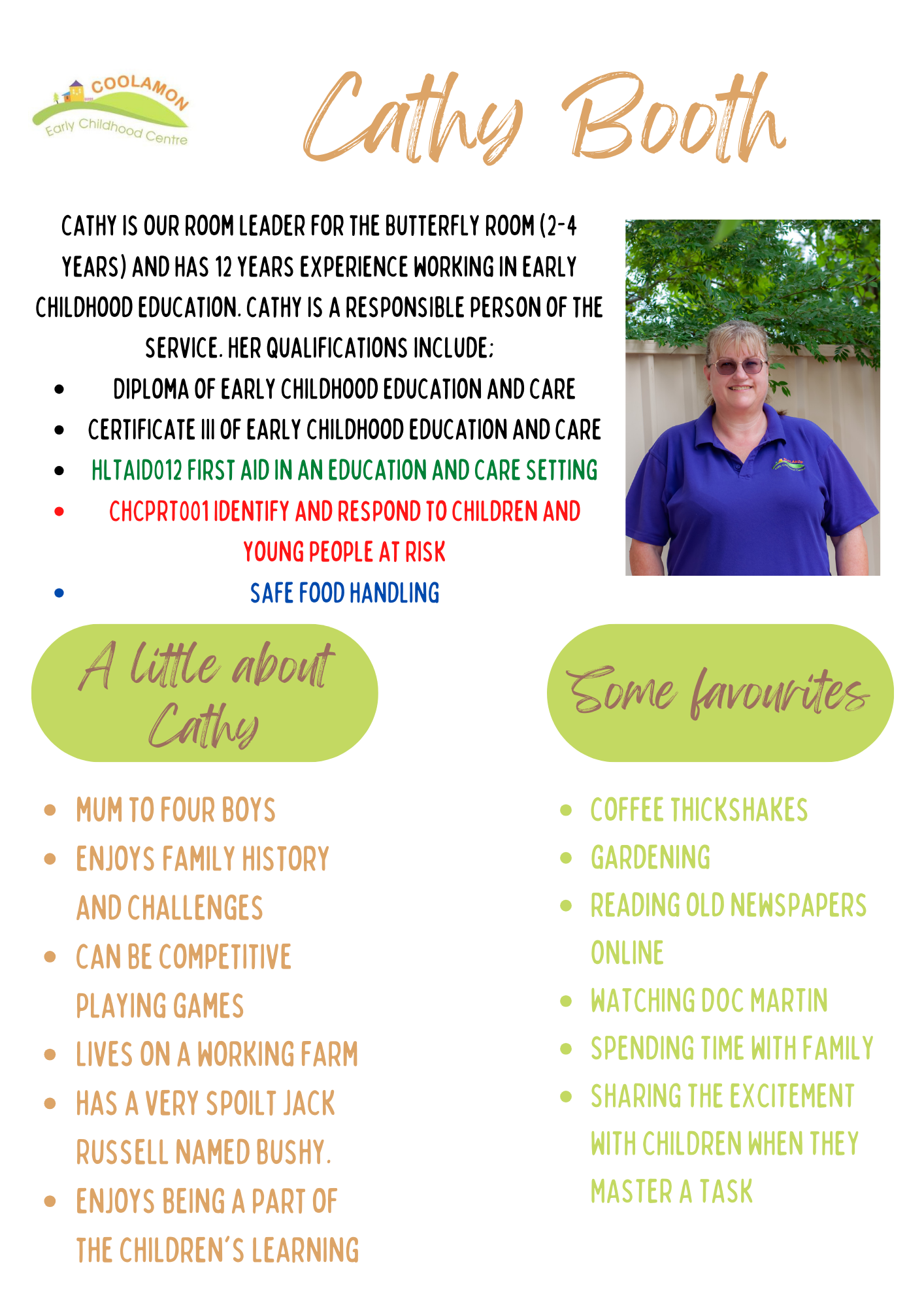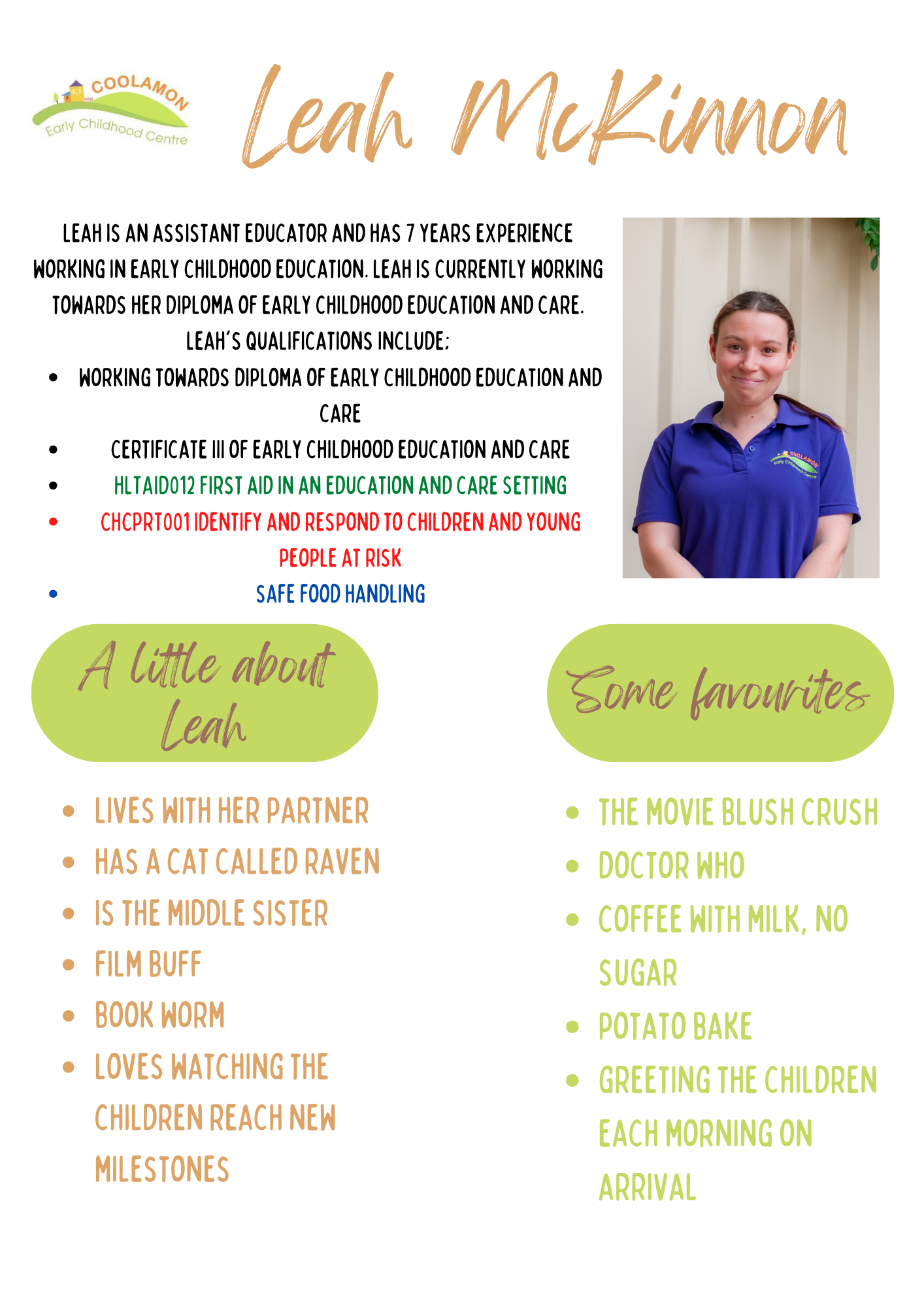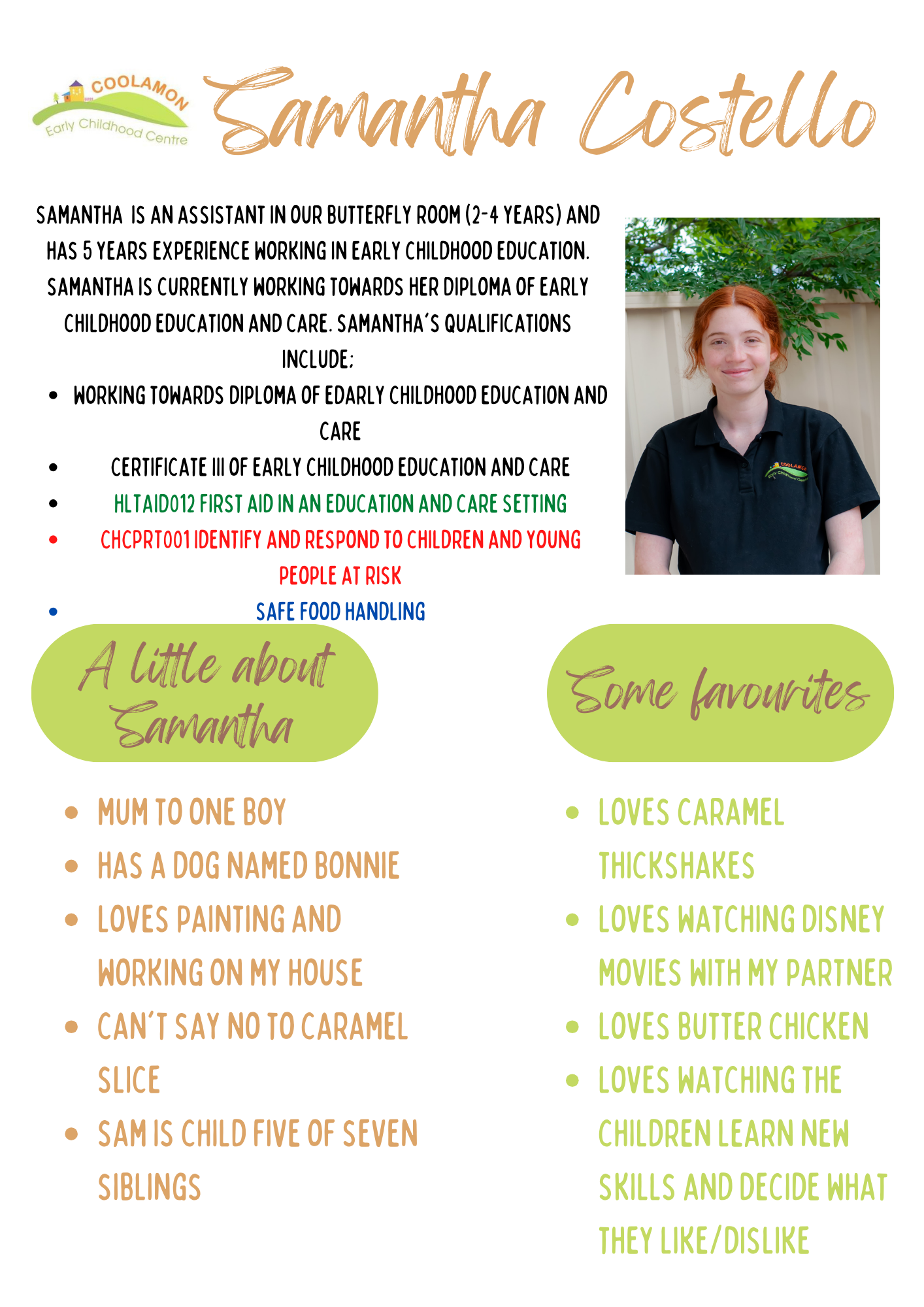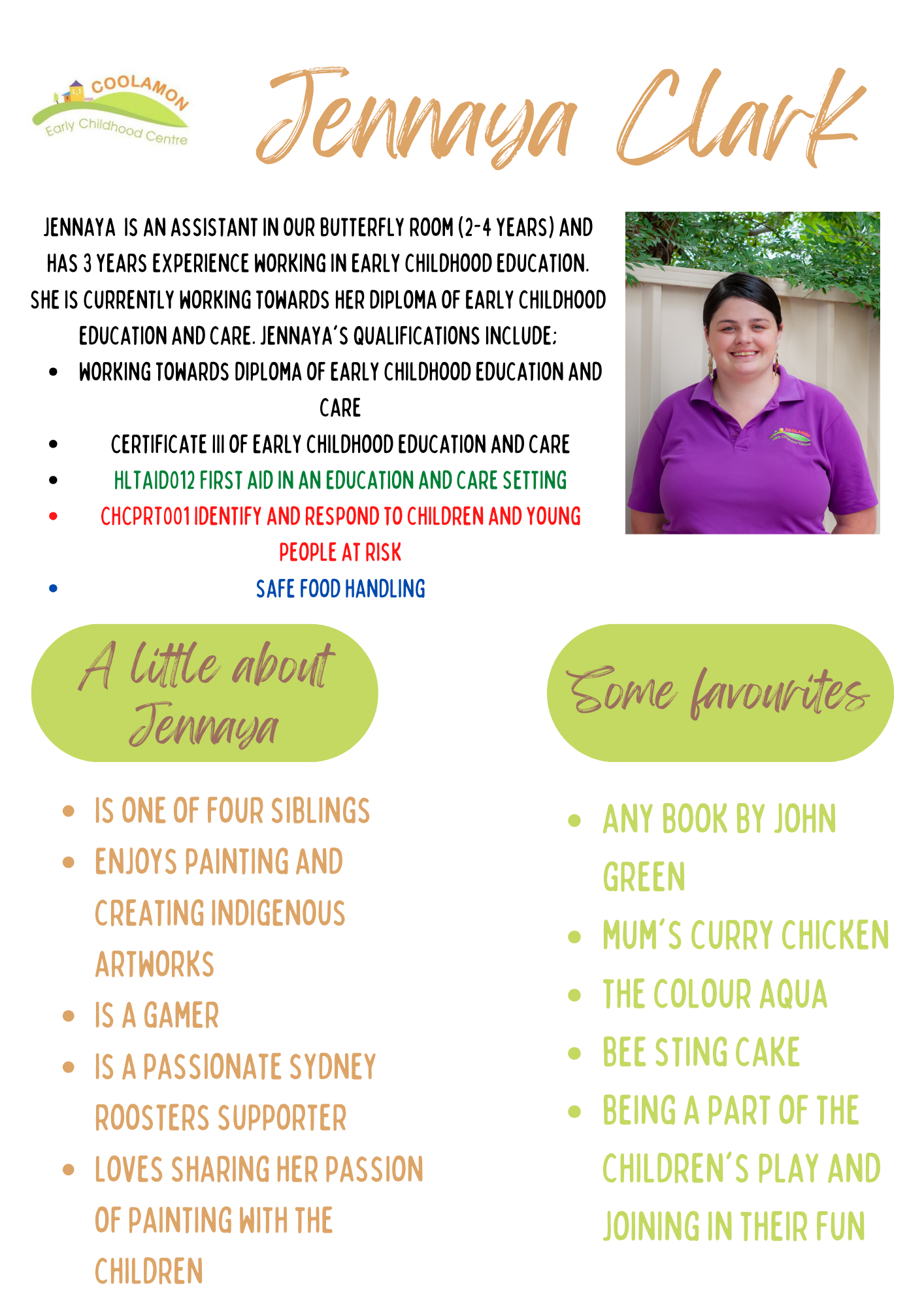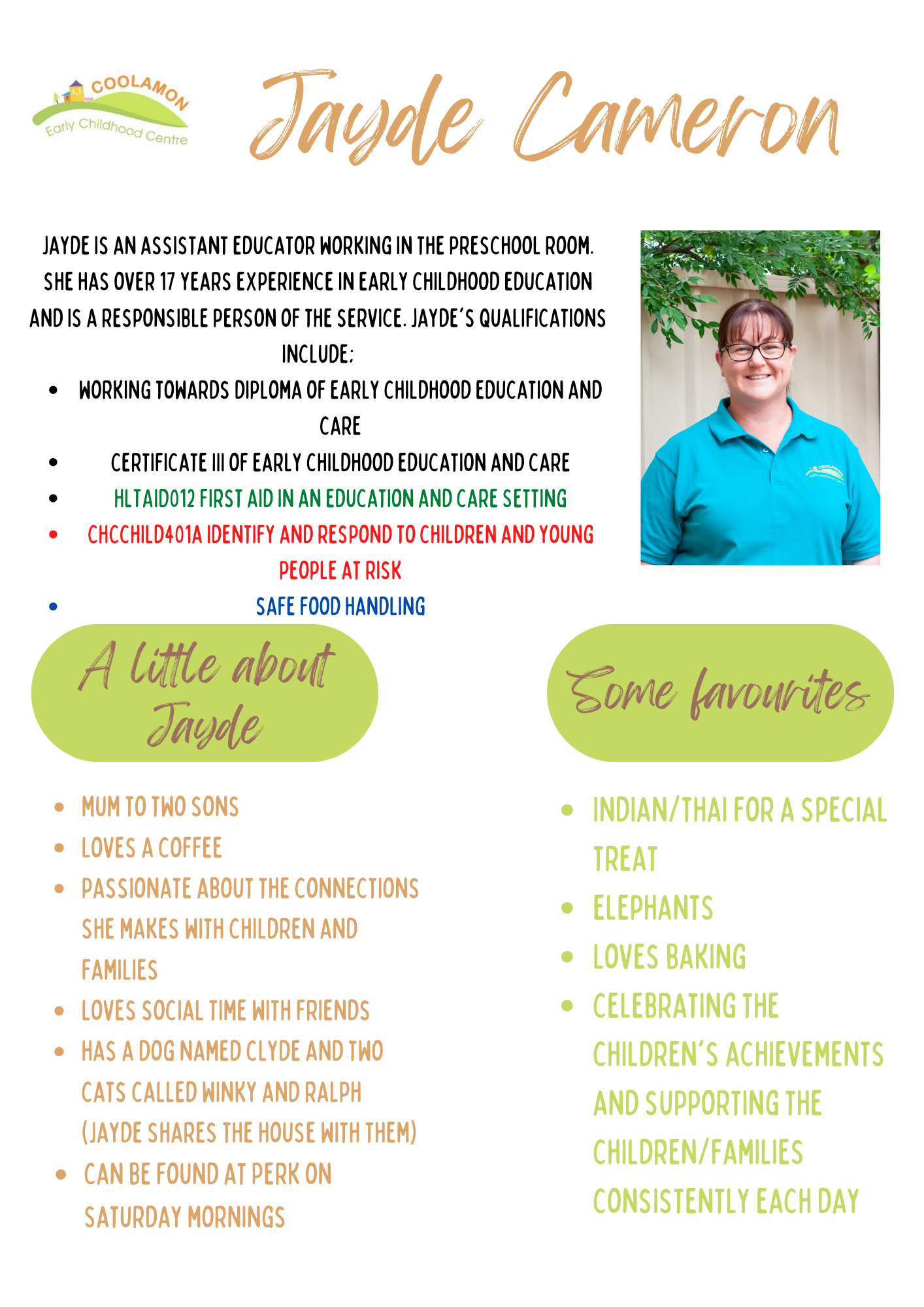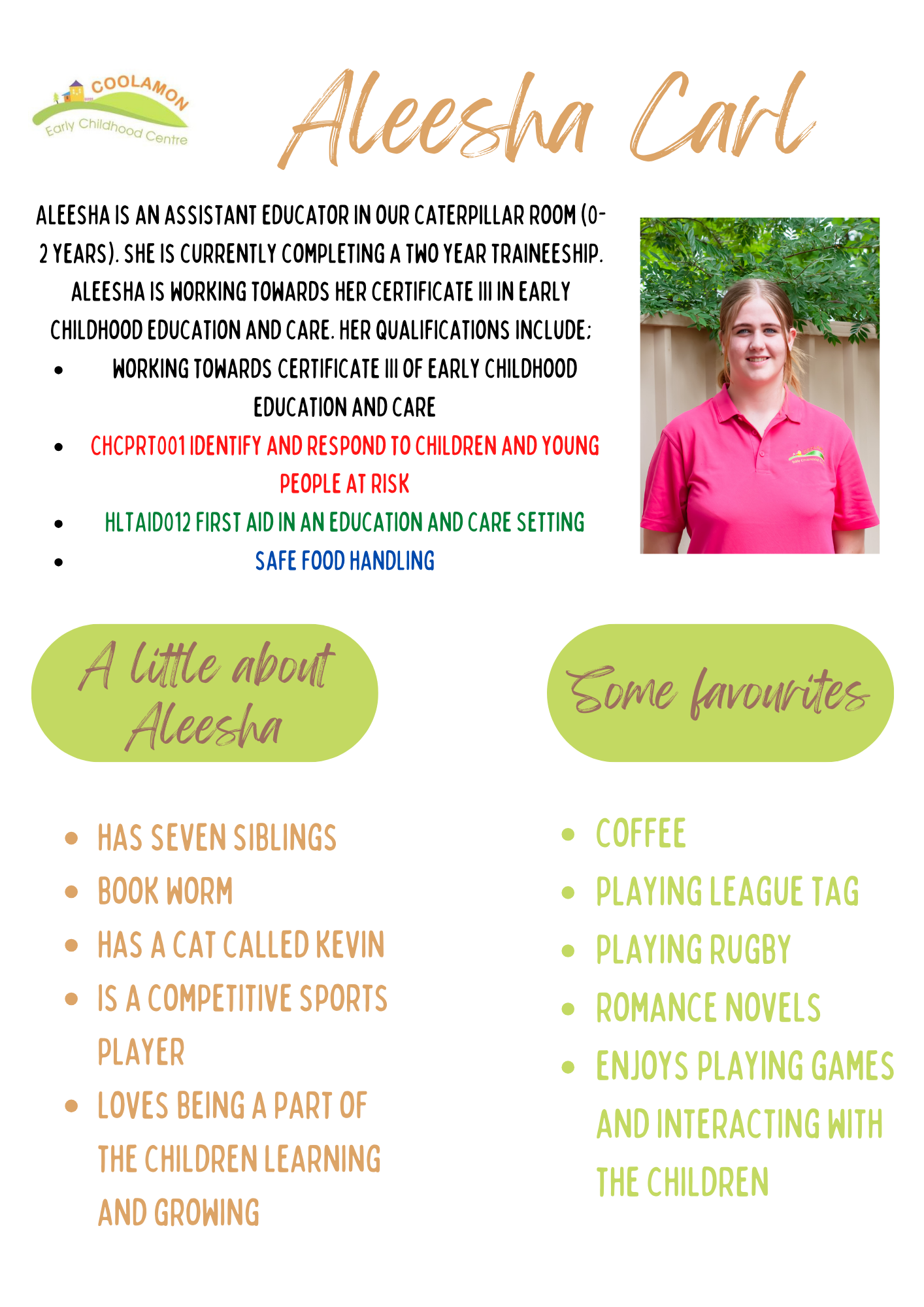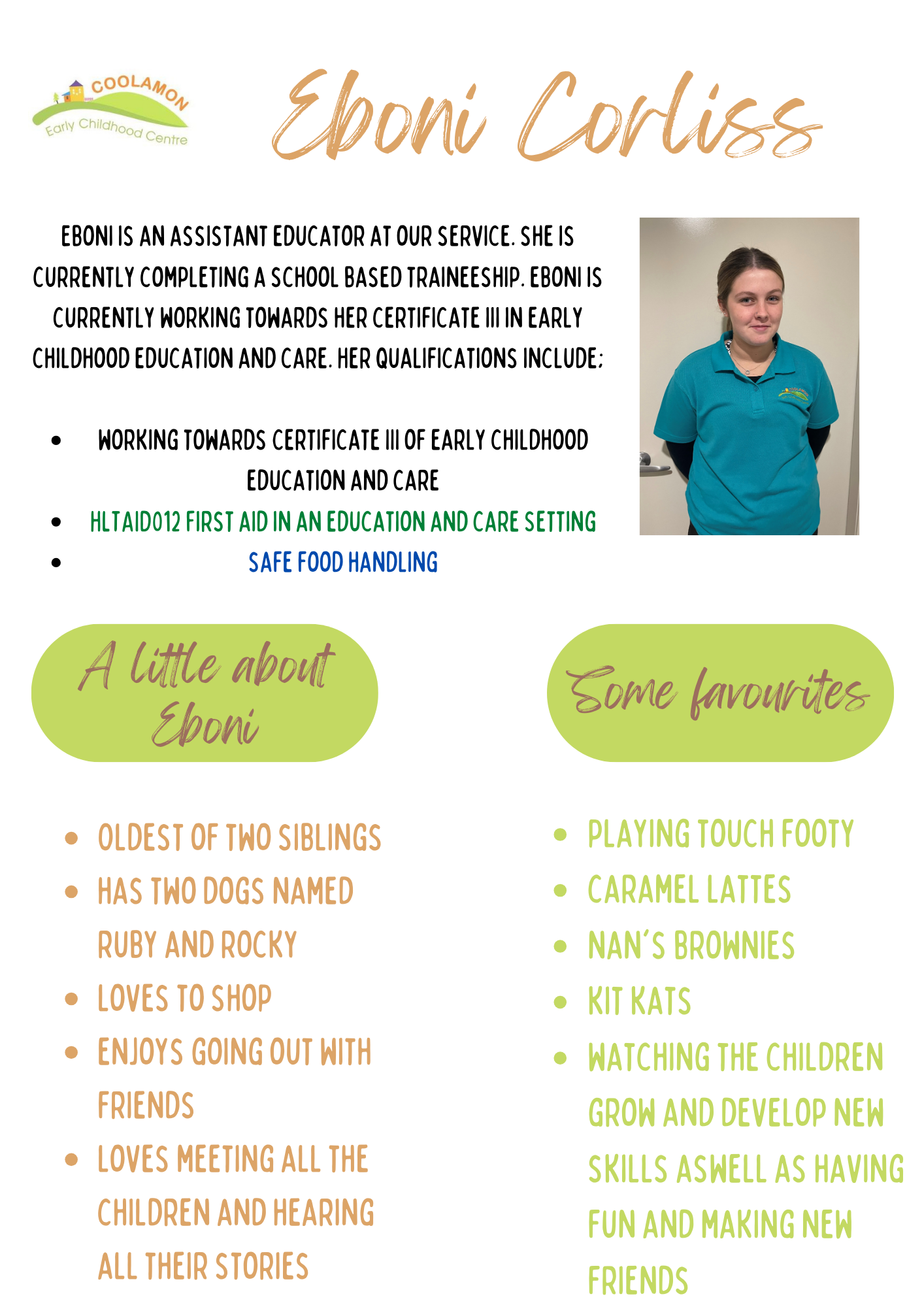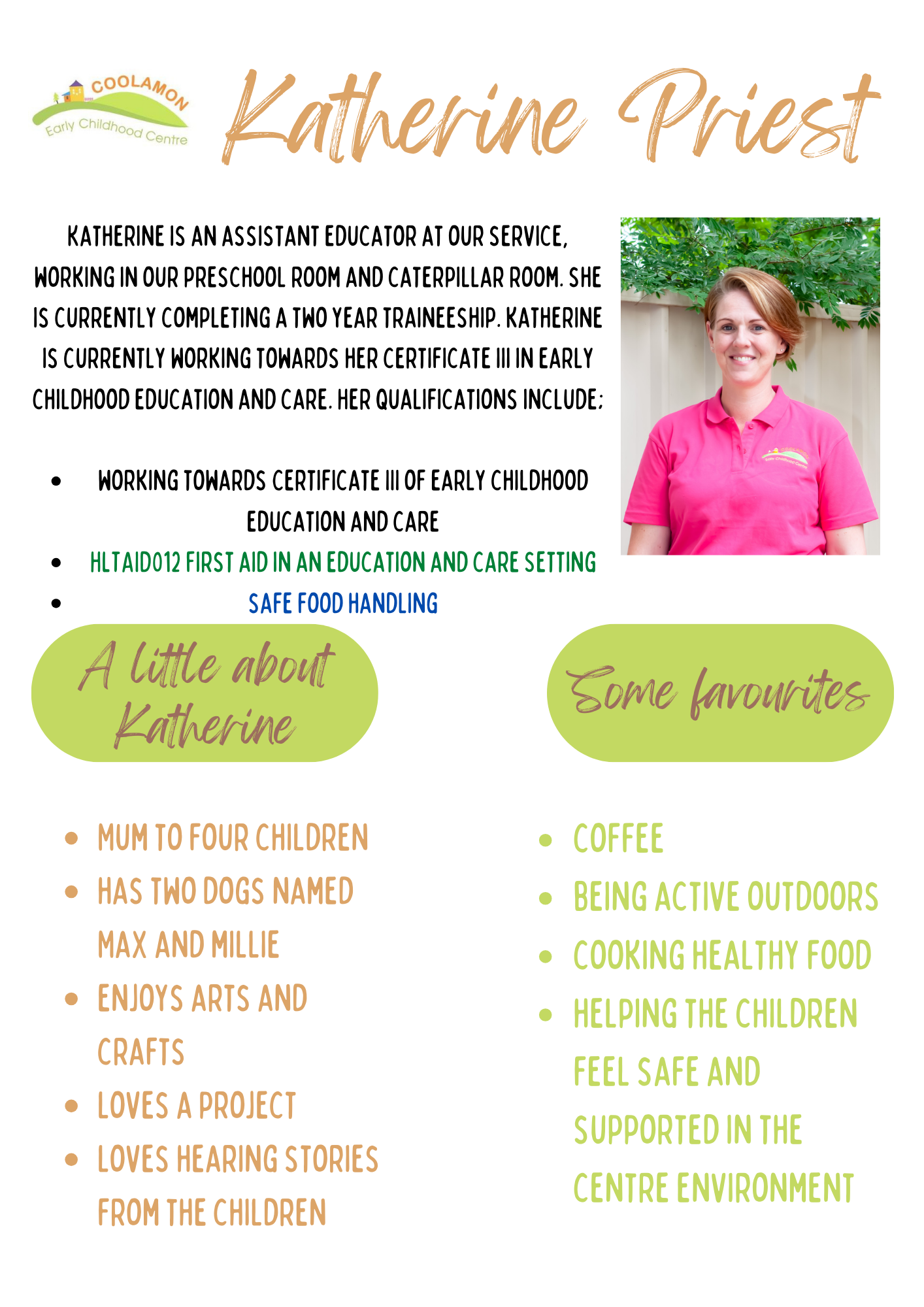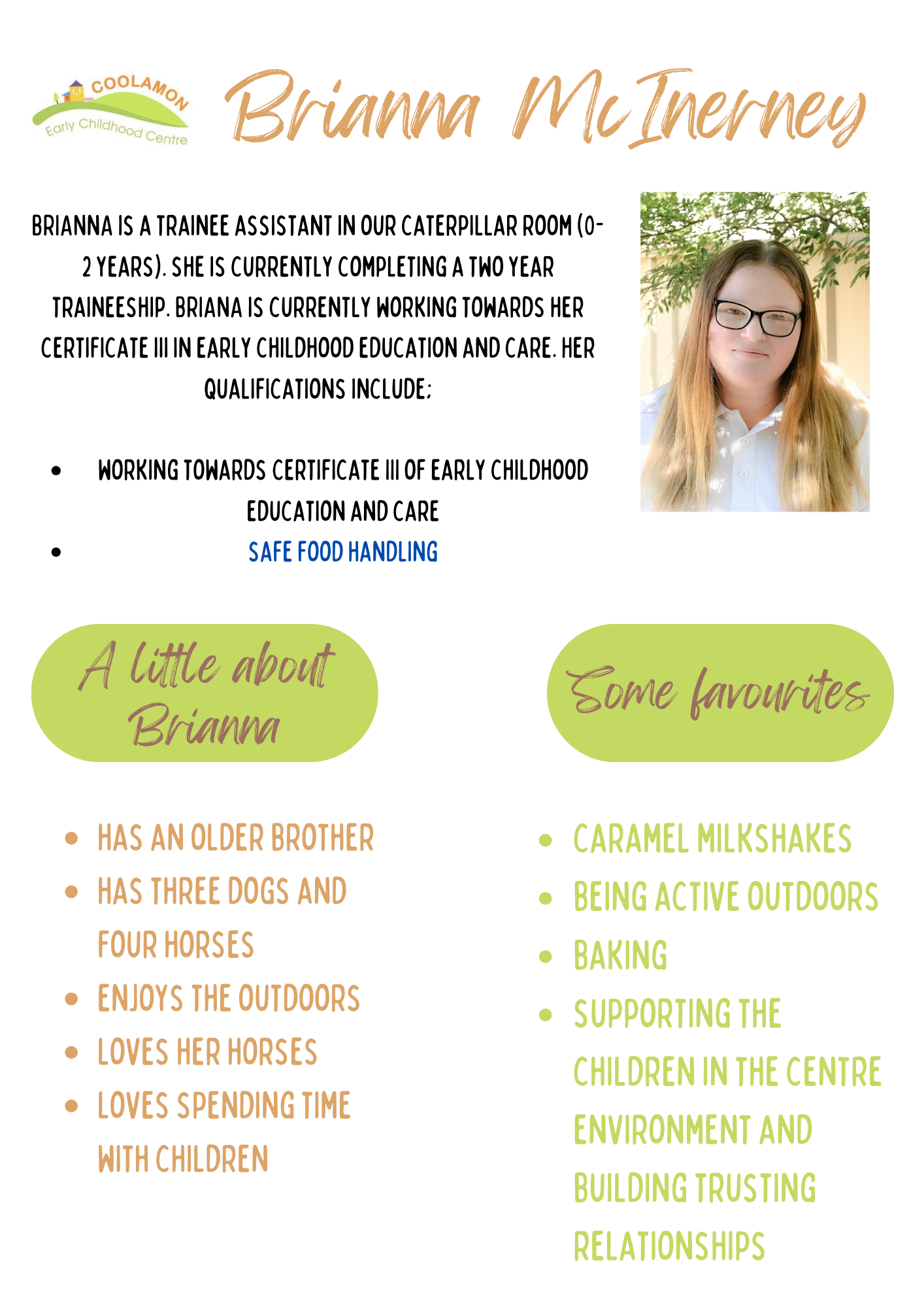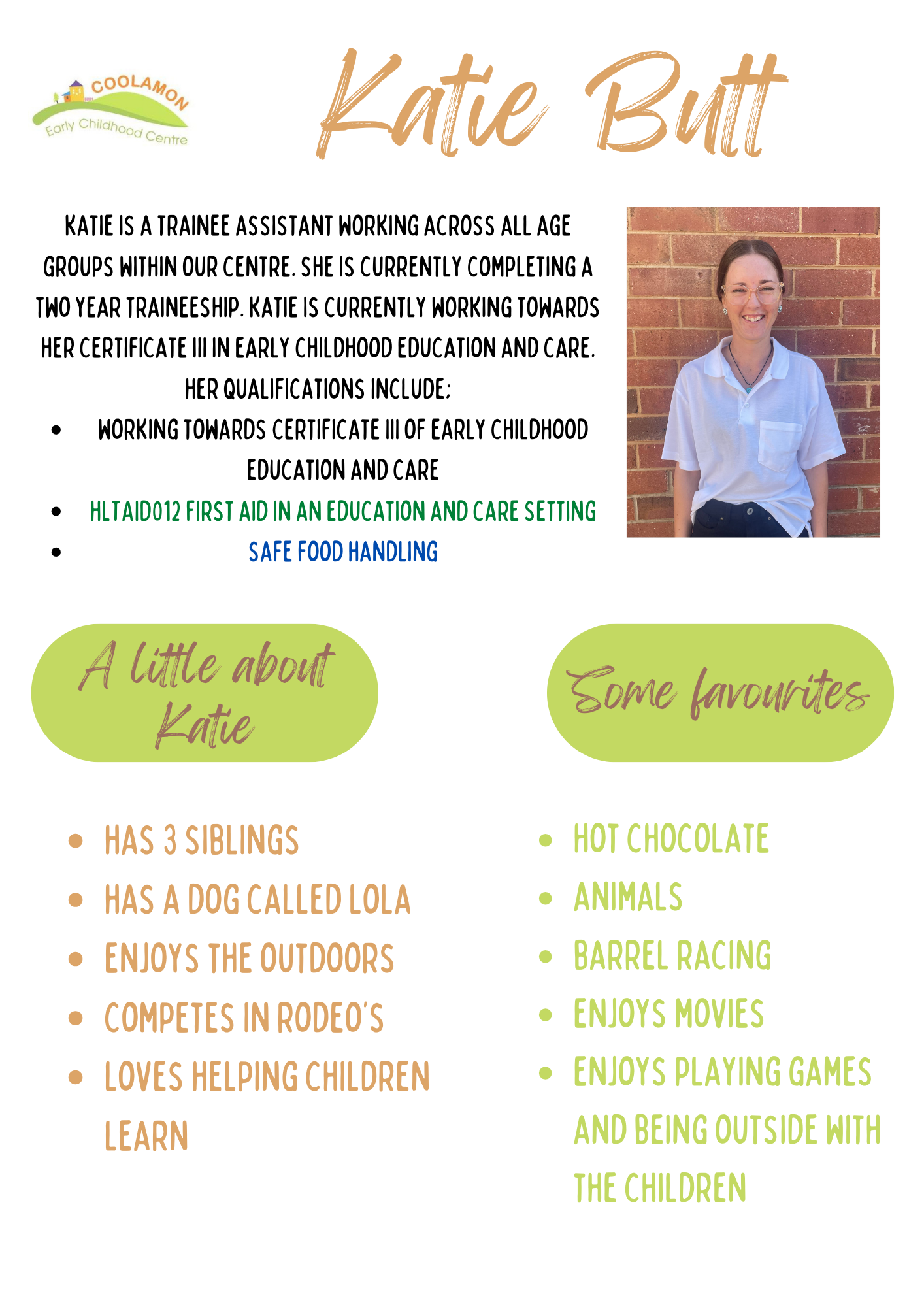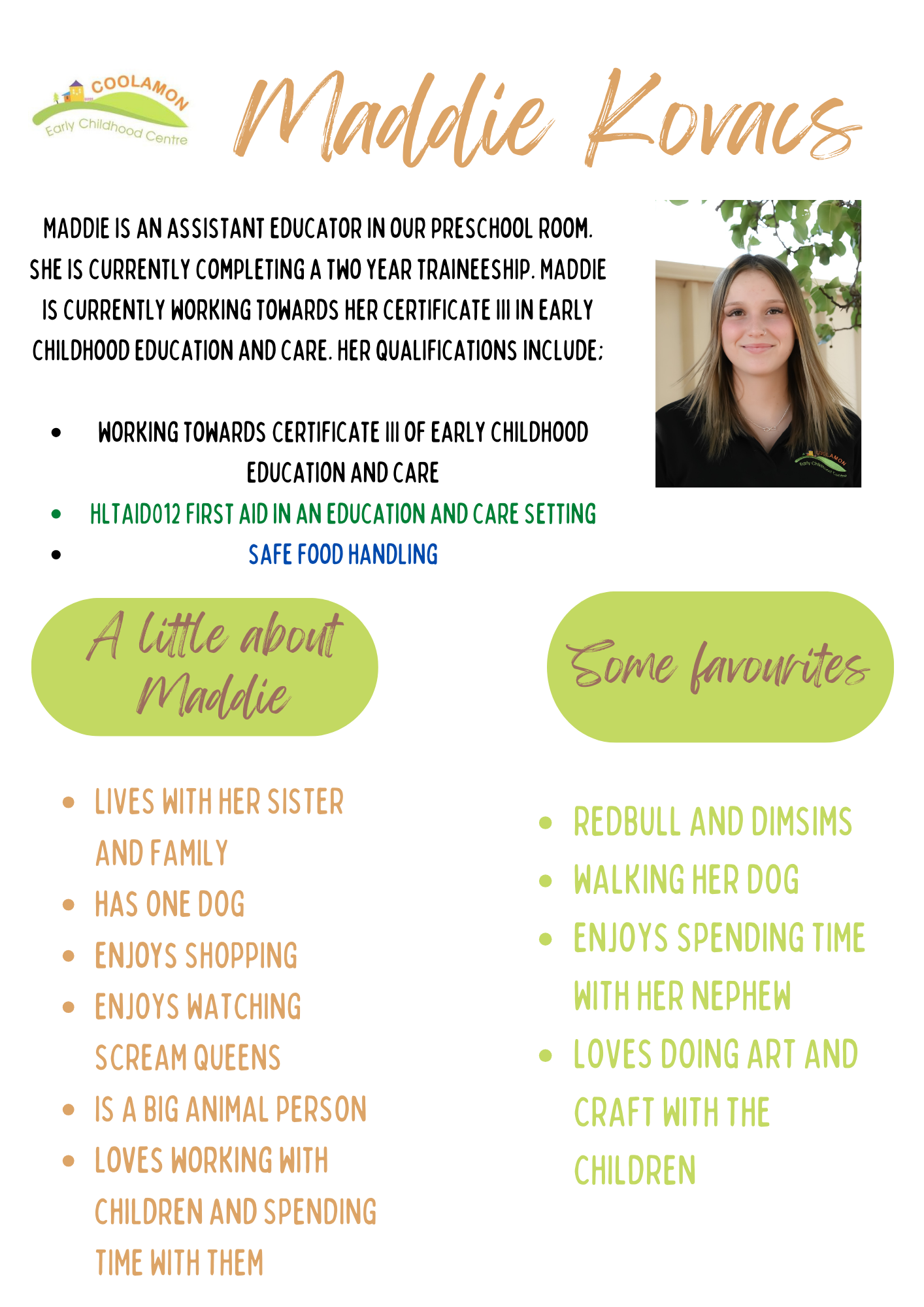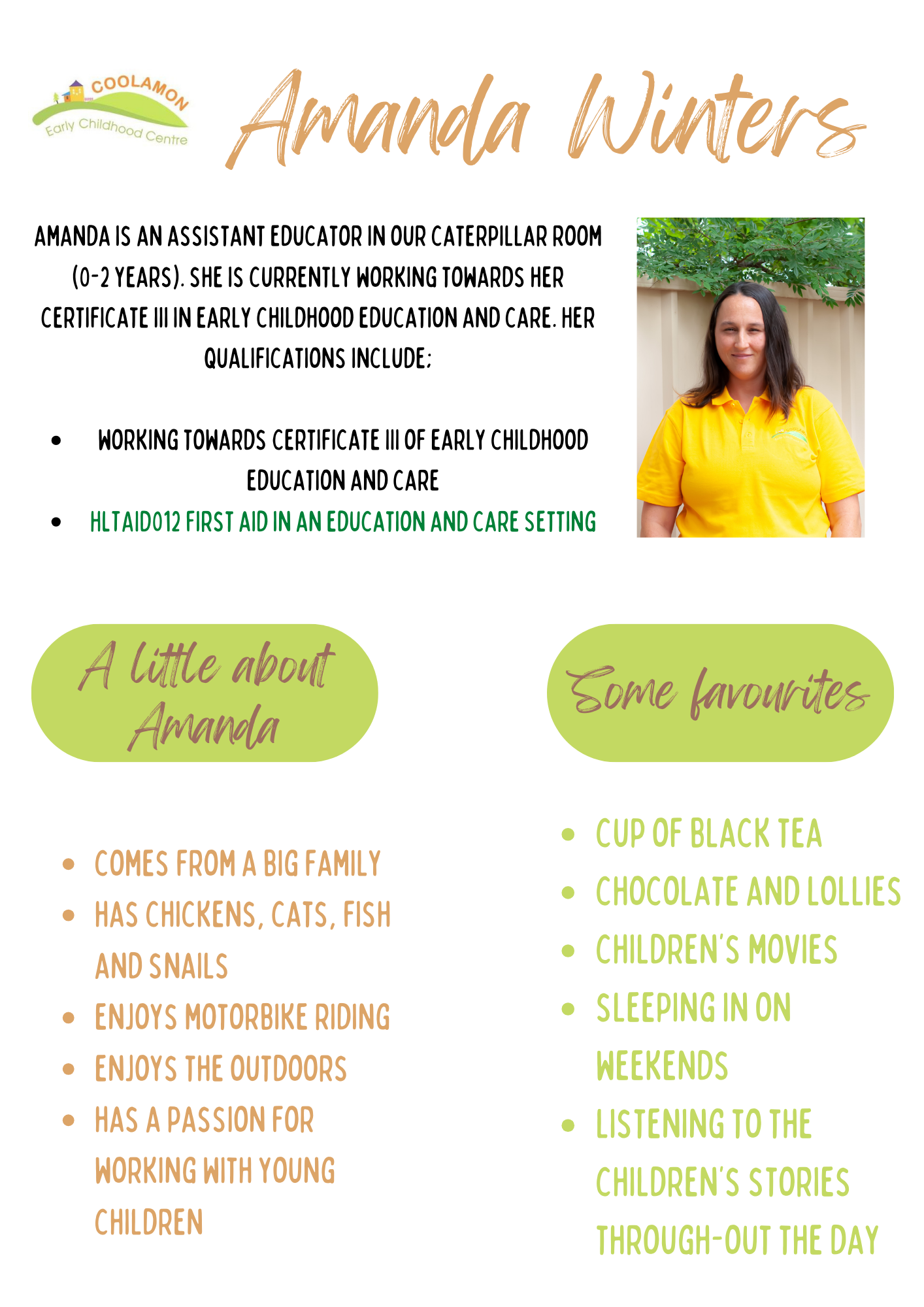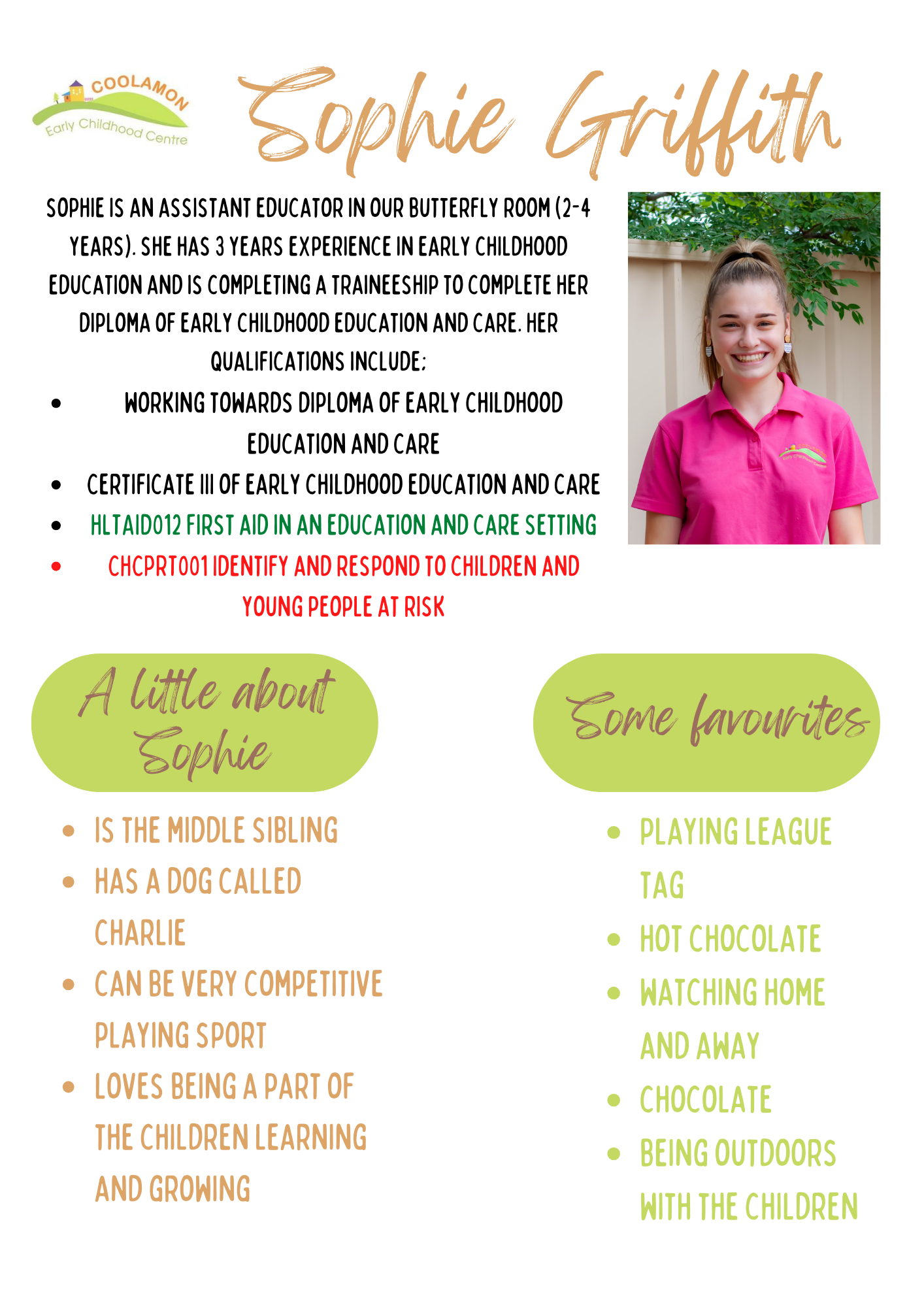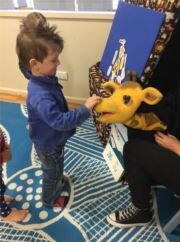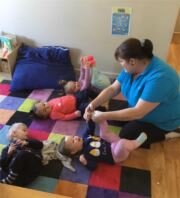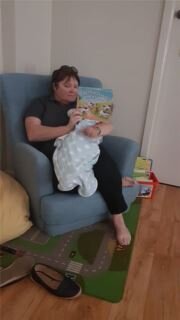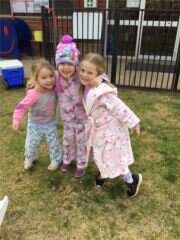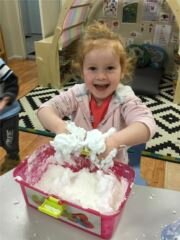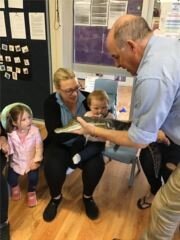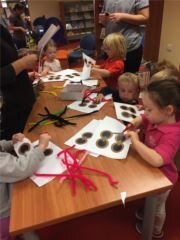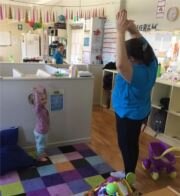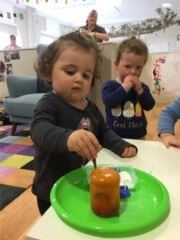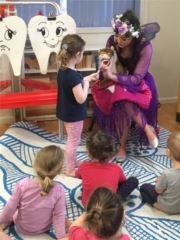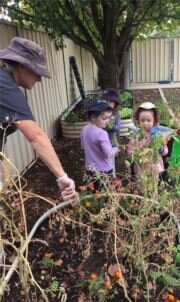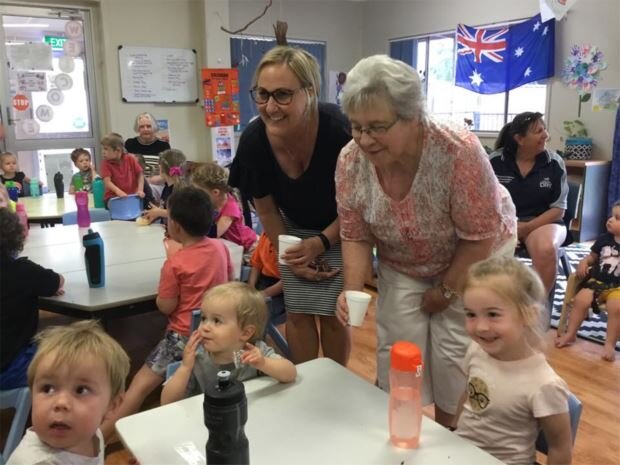Coolamon Early Childhood Centre
Coolamon Early Childhood Centre consists of three rooms, Caterpillar Room: 0-2 years age group, Butterfly Room: 2-3 years age group, Preschool Room: 3-5 years age group.
We pride ourselves on creating a welcoming environment for families and children. Our educators provide nurturing, stimulating environments that incorporate collaborative learning between educators, children, families, the wider community and specialist support agencies.
We open 7am till 6pm, Monday to Friday. We are located in the town centre on Bruce Street, 40 minutes from Wagga Wagga creating prime opportunity for parents working outside of Coolamon and help ease those busy morning and afternoon routines whilst on the way to work or school.
Using the key educator approach, we are working in partnership with families to ensure all children feel secure, safe and confident, this allows children to make the most out of all learning opportunities provided on a day to day basis.
Our centre makes an extra effort to invest an interest in the local community to help them understand the importance of a child's sense of belonging in their environment.
Through implementing the Early Years Learning Framework we strive for children to feel confident with their identity and develop a sense of “Being, Belonging and Becoming” (DEEWR, 2009). Children’s needs are supported through the principles and learning outcomes identified in the Early Years Learning Framework.
We would welcome the opportunity to meet you and your family and explore how we can support you on this early learning adventure
Contact details
66 Bruce Street, Coolamon NSW 2701
P: 02 6927 3991
F: 02 6927 3994
E: cecc@coolamon.nsw.gov.au
FB: www.facebook.com/Coolamon-Early-Childhood-Centre-528885947244487/
Our Educators
Centre Philosophy
At Coolamon Early Childhood Centre, we believe that early childhood is a unique period in life, where the foundation for future learning and wellbeing is established. Our philosophy encompasses the core values of our team who believe children to grow and develop at their full potential, feeling safe and supported is vital. We pride ourselves on creating a welcoming and supportive environment for families and children.
We aim to provide an environment, which supports children’s emotional, spiritual, social, cognitive and physical development. Through implementing the Early Years Learning Framework we strive for children to feel confident with their identity and develop a sense of “Being, Belonging and Becoming” (ADGE, 2022). Children, families and the community will experience an environment that is rich and reflects home cultures and beliefs of our children’s families.
-
We are dedicated to maintaining a safe and secure environment in which children can explore learn and thrive. We understand that children’s physical and safety needs are fundamental to their development. Our programs are developed to ensure the children’s basic needs, as outlined in Maslow’s Hierachy of Needs, are met. We recognise that children learn through play and we provide an environment that respects every child as an individual.
Our educators believe children are capable learners and recognise that children learn through play. When setting centre play environments, we consider each child as an individual with their own interests and capabilities. We encourage children to express ideas and be active participants in their learning. Our programs are flexible and responsive to the children’s current developmental stage and emerging interests.
Children are supported by our educators to feel included and are encouraged to respect differences including home cultures. We recognise the importance of emotional wellbeing in the early years. Our educators feel a strong alliance to John Bowlby’s attachment theory, which emphasises the critical role of secure attachments in children’s emotional development.
-
We place a strong emphasis on building trusting and supportive relationships with families. Our educators see families as a valuable resource. We believe in open communication, collaboration and involving families in their child’s learning. Our educators believe each family is unique and their requirements and views are respected. By working in collaboration with families, we ensure that children receive consistent support within the centre environment and at home.
-
Our educators implement the Child Safe Standards and aim to create an awareness of the importance of protecting children from harm. Our team act with honesty and make decisions that are clear and ethical. A safe and stimulating environment is created with our caring and nurturing approach. Our educators pride themselves as active team members and as working professionals ensuring centre policies and procedures are adhered to accordingly.
Our commitment to continuous improvement is reflected through professional development support, mentoring from experienced educators and a team approach to reflection.
Educators aim to honour cultural differences including languages, cultures, tradition and family lifestyle choices. We acknowledge and respect the heritage of Indigenous Australians by promoting awareness of cultural diversity. Our team share with children our respect for Wiradjuri country by integrating Indigenous learning within our centre programs. By respecting diversity among families and the wider community, educators aim to embrace the rights of all children and aim for children to see themselves as competent learners.
-
Community involvement is a fundamental part of our philosophy and we believe children learn best when they are connected to their local community. Our centre organises excursions and community based activities to enrich children’s involvement within their local community. Our educators aim to empower the wider community to encourage participation of children in events and build positive connections. Through positive connections between educators, families and community member’s children will develop a sense of belonging and confidence to interact and learn from each other.



